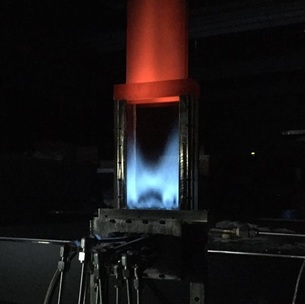Fuel FlexibilityCombustion produces
over 80% of the global energy supply and will remain a major pillar of
the energy and transportation landscape for the foreseeable future.
Meeting climate change and sustainability goals therefore requires
combustion systems that can operate with a variety of renewable and
'net-zero-carbon' fuels. Unfortunately, such fuels generally cannot
simply be dropped into existing systems due to variations in their
mechanical and chemical properties.
Various research projects in the Experimental Engines Lab aim to understand how changes in fuel composition affect engine operation. Our focus is on how various attributes of the fuels affect stability limits, emissions, combustion distribution, and other parameters. We also are working on control technologies that allow broad fuel-flexibility with minor changes to engine hardware. Partners in this area include UTIAS, McGill University, the BioFuelNet, collaborators at UTIAS, and engine manufacturers. |
